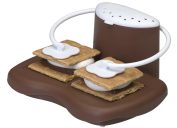15 Things You Didn't Know Had a Shelf Life
Hand sanitizers, disinfectants, and even sunscreen all have expiration dates you need to know about.
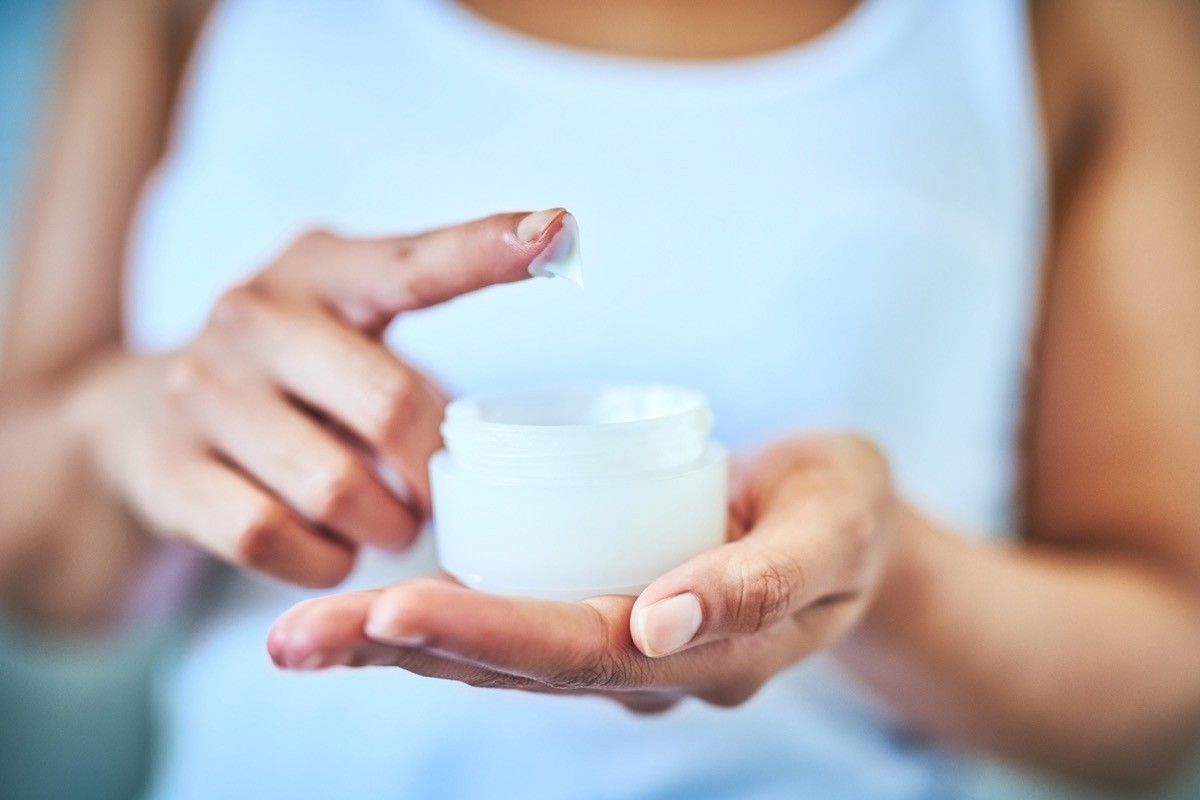
There are many items that have a clear expiration date. For instance, we know exactly when it's time to toss out those old eggs or that spoiled carton of milk. However, other common household items aren't as clear-cut. And there are many things you use daily that you might assume last far longer than they actually do. As is the case with certain products designed to clean or disinfect, once they expire, they become less effective at keeping you safe from harmful bacterias and viruses—and that includes the coronavirus. With that said, you may want to check the shelf life of these 15 common items before using them. And for more products past their prime, check out the 17 Gross Household Items You Should Replace More Often.
1
Hand sanitizer
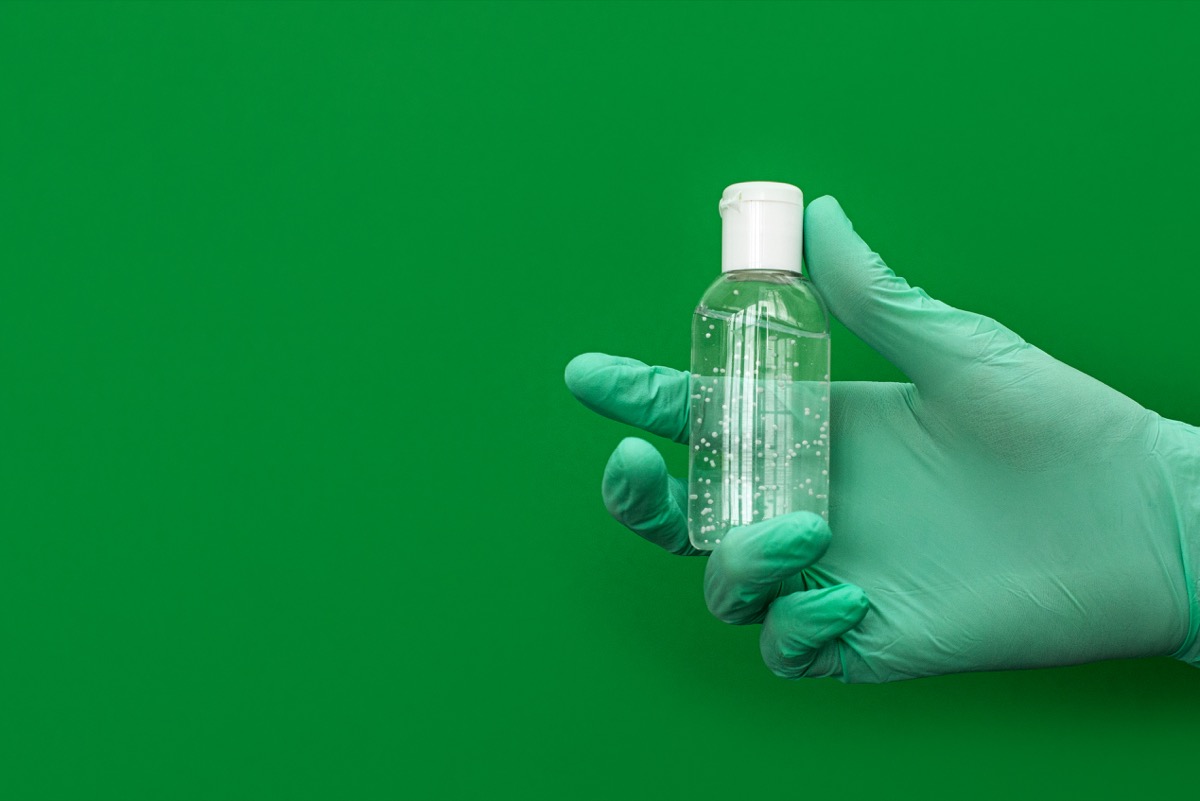
If you're carrying hand sanitizer on you during the COVID-19 pandemic, make sure it's one that isn't past its expiration date. Vanessa Thomas, a cosmetic chemist and founder of Freelance Formulations, previously told Best Life that because they are over-the-counter products, hand sanitizers are required to have an expiration date listed on the package. And according to Thomas, most of them expire within two to three years. And for more about this now-essential product, check out The No. 1 Thing About Your Hand Sanitizer You Need to Know.
2
Disinfectants
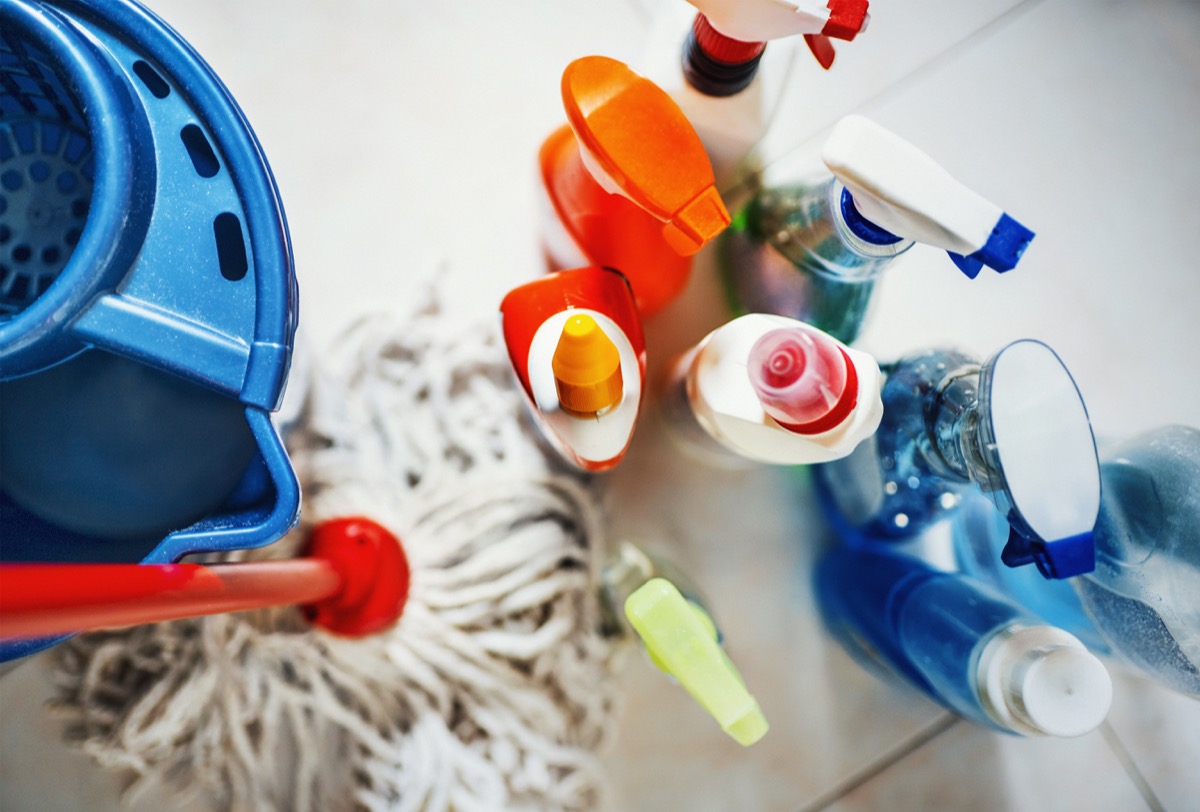
In a time where disinfectants are extremely important to fight the coronavirus, you need to make sure you're using one that actually works—meaning one that hasn't expired.
According to the Center for Research on Ingredient Safety (CRIS) at Michigan State University, the United States Environmental Protection Agency (EPA) requires all disinfectants to have an expiration date listed if their formulations lose potency and degrade over time, rendering them ineffective. The shelf lives of these types of cleaning products tend to vary, so it's important to check their labels first. For instance, Clorox notes on their website that all Clorox Equity and Fraganzia products have a shelf life of one year unless specifically stated otherwise. And for more sanitizing knowledge, check out The One Thing You're Doing Wrong Every Time You Disinfect.
3
Hydrogen Peroxide
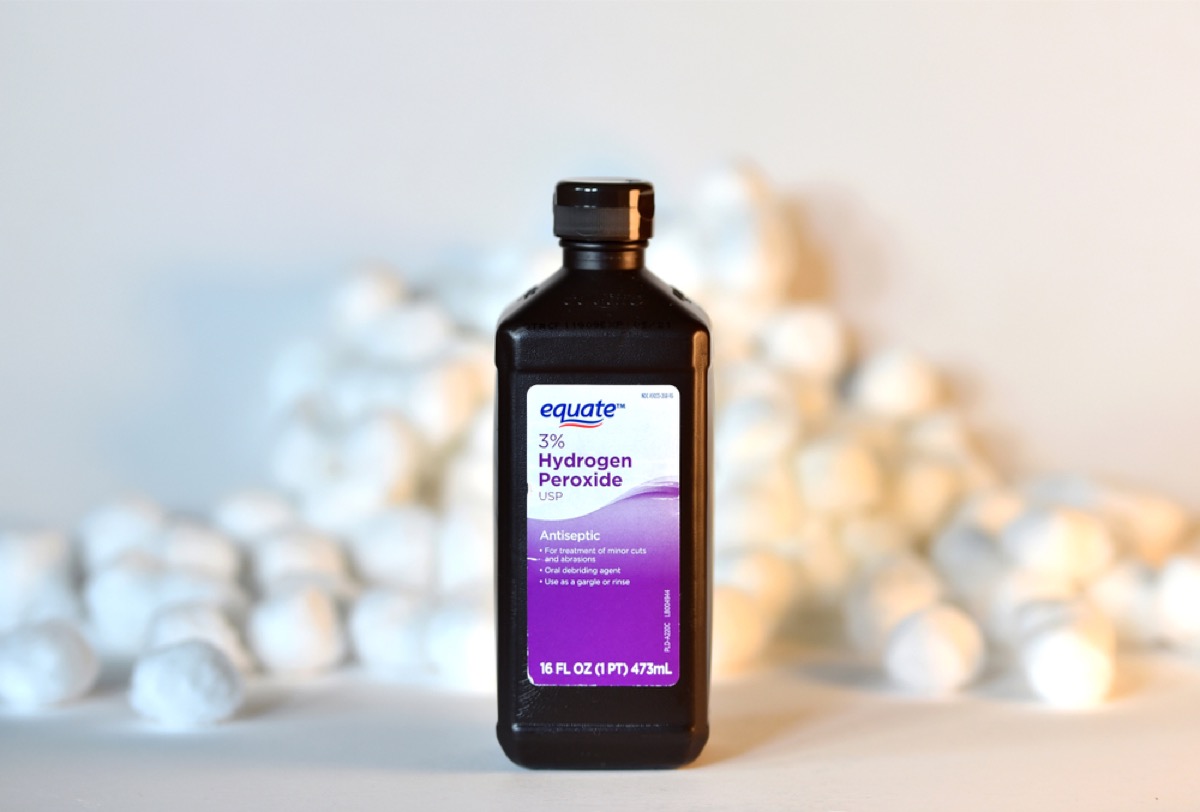
Just like many disinfectants, the chemicals in hydrogen peroxide break down and degrade over time, as well. TexWipe, a company that manufacturers contamination control supplies and critical cleaning products, did a study in 2015 in which they found that hydrogen peroxide solutions typically have a shelf life of up to three years. That means, using it in that time frame can be done "without concerns about the quality and stability" of the product. Anne Helmenstine, MD, co-founder of Science Notes backs that up—although with one important caveat—writing that the shelf life of an "unopened household peroxide is about three years," but if open, it may only be good for one to six months.
4
Toothpaste
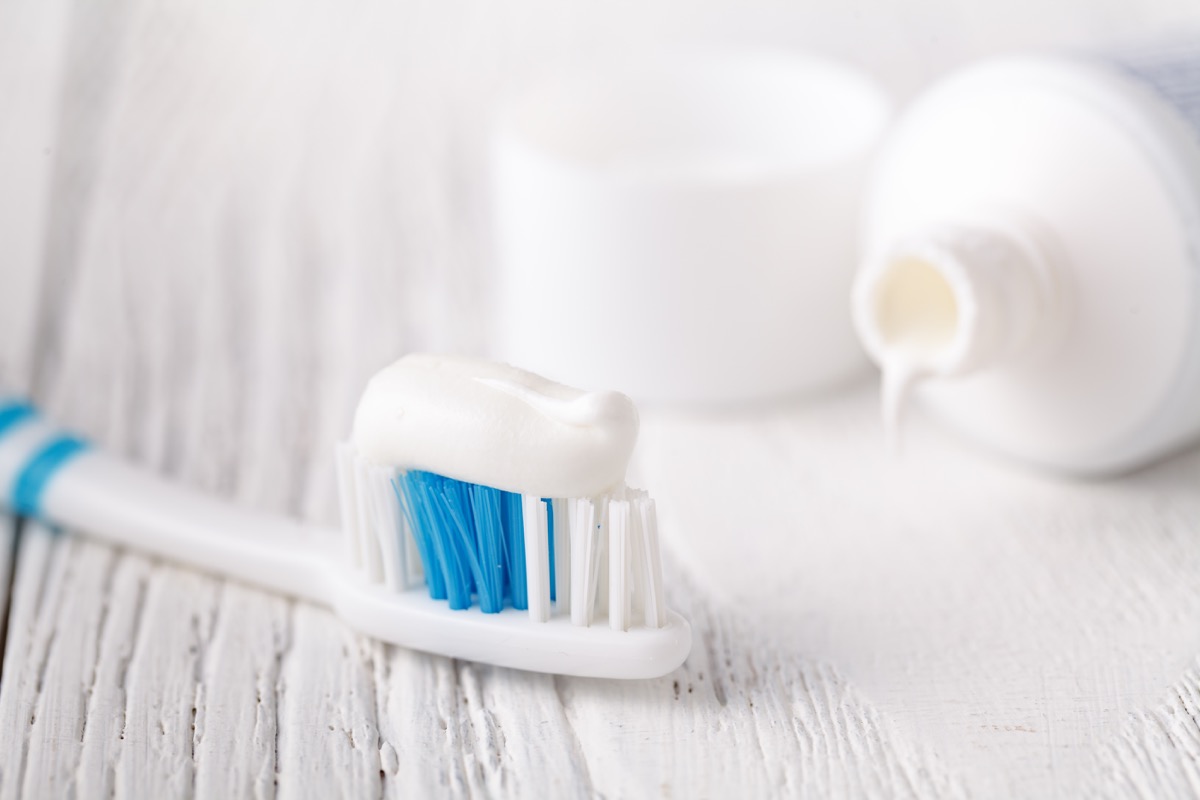
Yes, your toothpaste can expire. If you haven't managed to empty that tube within two years, you may need to replace it—not to mention start brushing your teeth more.
According to the experts at Colgate, though "all Colgate toothpastes have an expiration date of eighteen months to two years," there is no immediate danger in using toothpaste past its expiration date. Instead, a toothpaste tube's shelf life just means that its effectiveness may no longer be as strong, as "fluoride in toothpaste can start to break down, decreasing your protection from bacteria-causing decay." And for more dental hygiene information, check out the 7 Precautions You Must Take Before Going to the Dentist Amid Coronavirus.
5
Moisturizer
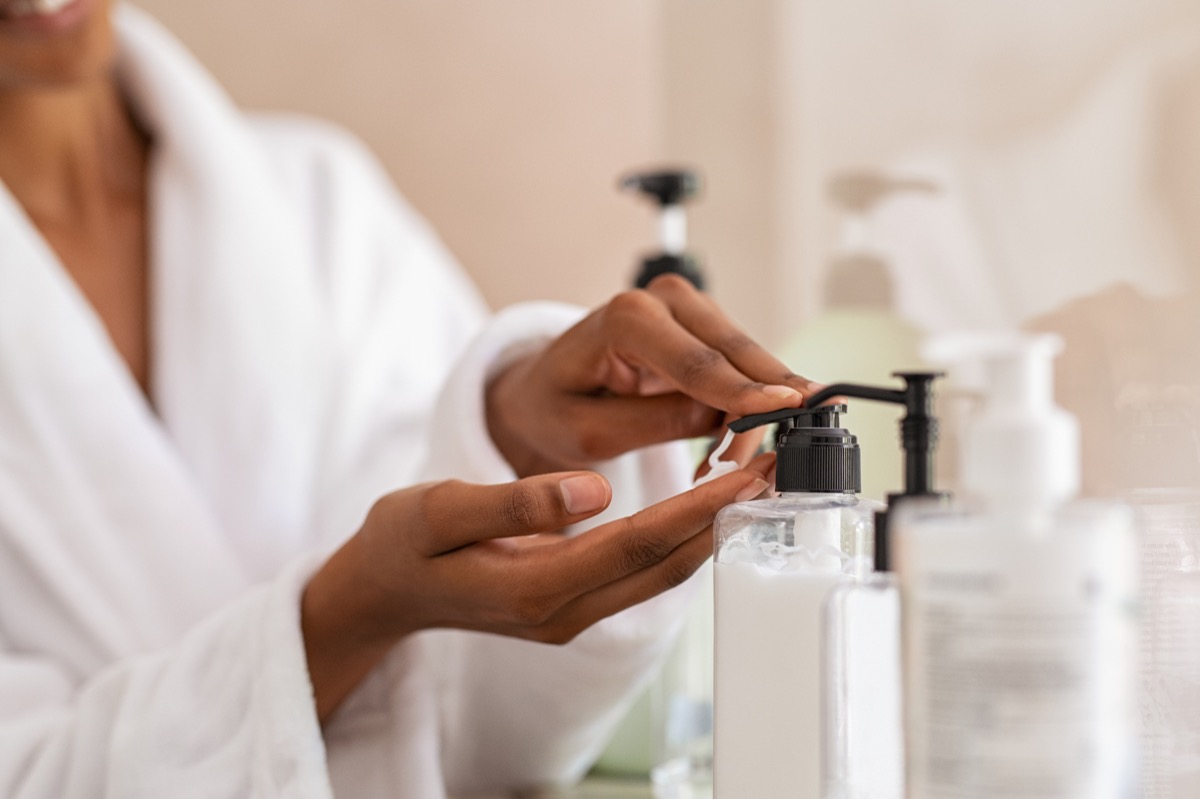
You may be exposing yourself to bacteria if you use expired moisturizer, according to the Skin Smart Dermatology and Skin Care Center. Not only that, but active ingredients, like retinol, glycolic acid, and Vitamin C, all break down within a year of opening, while benzoyl peroxide and salicylic acid become less effective within three to six months. Most moisturizers contain little jar symbols on their labels that may contain text like "12M, 18M, or 24M," which are indicators of how many months the product is usable after you open it. And for more about your body's largest organ, check out the 7 Signs Your Skin Is Trying to Tell You You Have Coronavirus.
6
Sunscreen
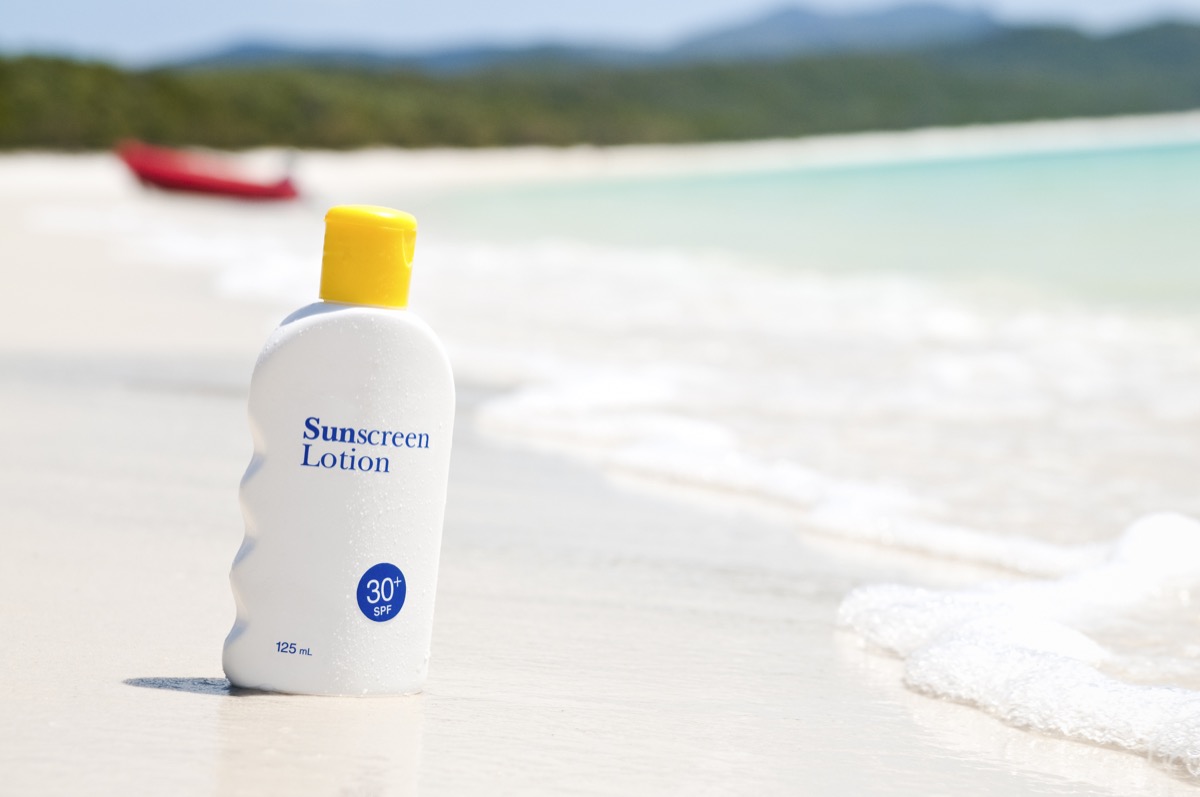
Your sunscreen won't do you much good if it's been kicking around your bag for longer than you can remember.
According to the Mayo Clinic, "sunscreens are required by the Food and Drug Administration (FDA) to remain at their original strengths for at least three years." However, some sunscreens specifically include an expiration date to let you know when it stops being as effective. If yours does not, the Mayo Clinic recommends that you discard your bottle of sunscreen no later than three years after the purchase date.
7
Bug spray
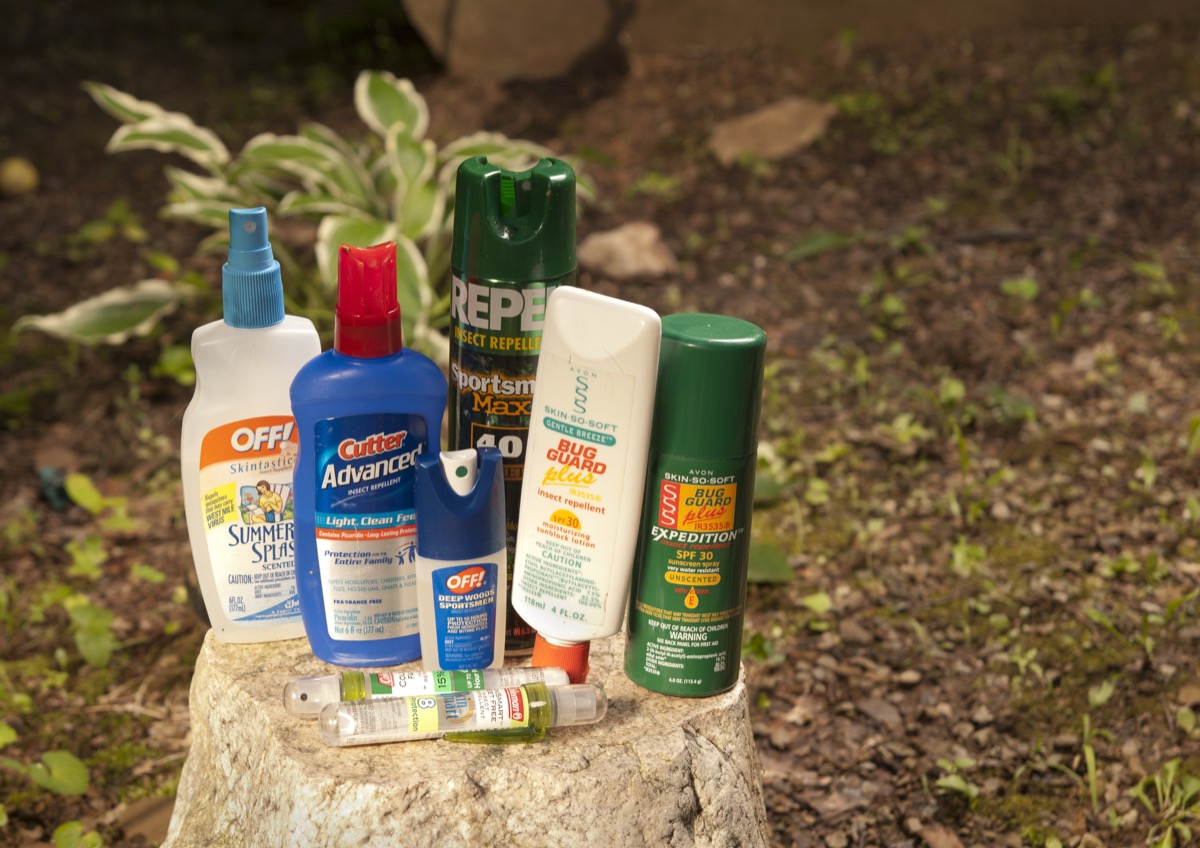
According to SF Gate, most bug spray is good for up to three years. However, like most other home products, it's not dangerous to use after that time, just less effective at performing its job. If there is no expiration date listed on your bug spray, they say you can call or email the manufacturer to ask. However, one tell-tale sign that your bug repellent may have expired is if the "product doesn't smell like it normally does." If you have a cream or gel repellent, you can also check to see if your product looks like it has dried out.
8
Laundry detergent
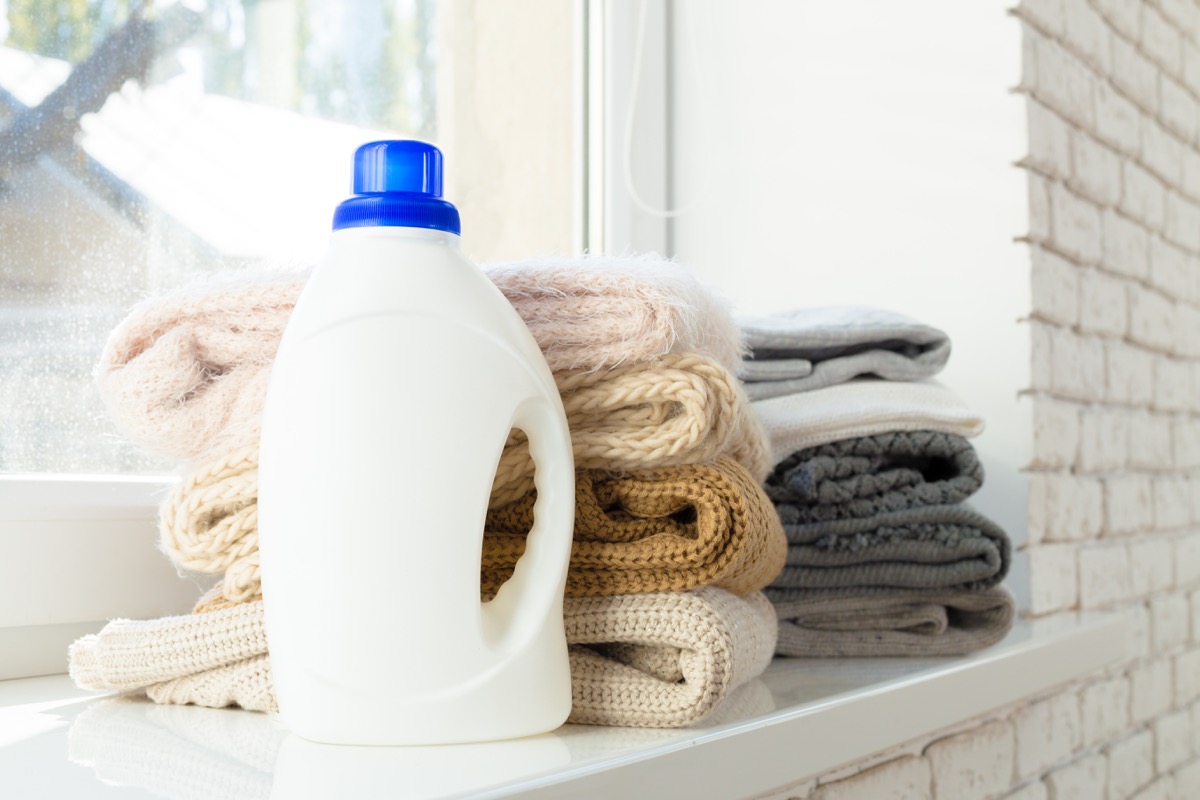
When washing clothes for COVID-19, you want to make sure you're using up-to-date laundry detergent, as well. According to The Spruce, like many other cleaning agents, laundry detergent doesn't spoil or go bad, but instead, loses its effectiveness over time. Most laundry detergents have a "best used by" date on their packaging, but if they don't, The Spruce says unopened liquid laundry detergent is best used within nine months to a year after purchased, and opened liquid detergent is good for six months. For powdered detergents, it's not about a time-frame, but more so if it becomes hard, which means it may not "dissolve correctly or completely in the washer."
9
Dishwasher detergent
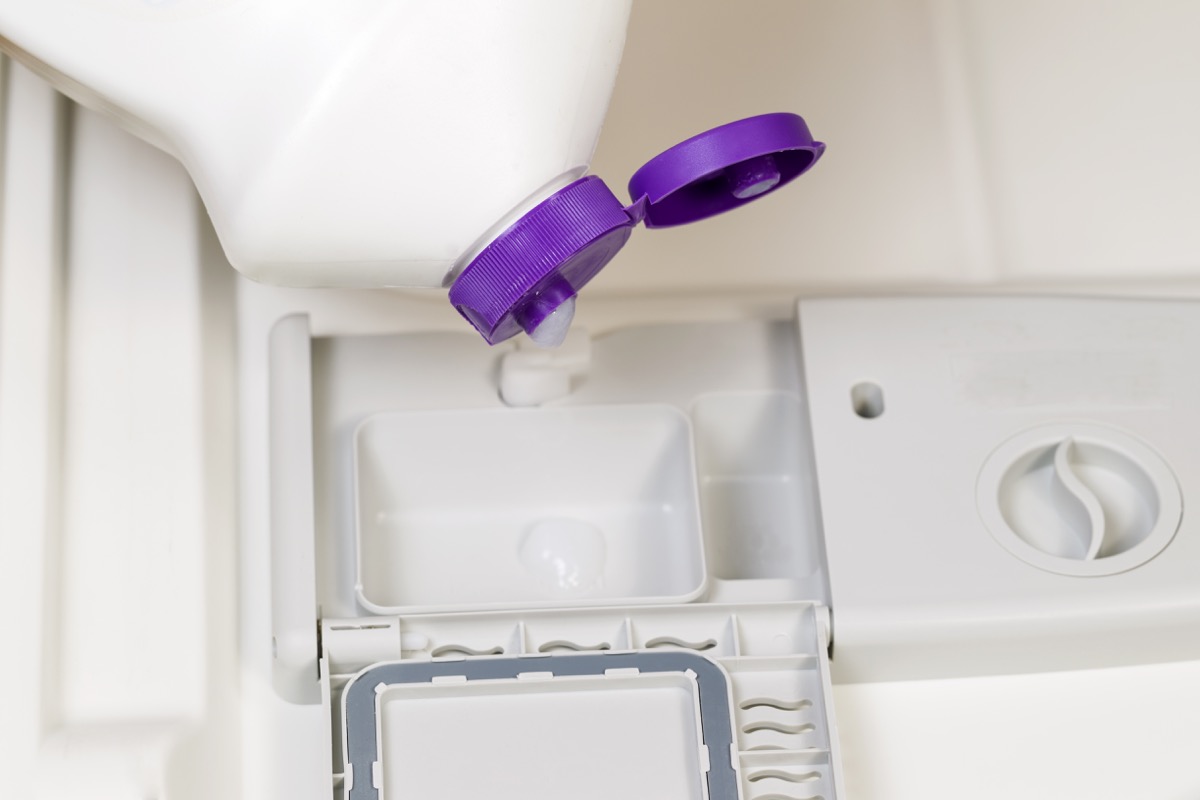
Dishwasher detergents should be replaced every three months, Nancy Bock of the American Cleaning Institute told The Kitchn. The enzymes in these detergents degrade quickly, meaning they no longer effectively remove the grime from dishes after three months. Eating off dishes that haven't been properly cleaned and sanitized puts you at risk for developing a foodborne illness, according to the public health organization Stop Foodborne Illness.
10
Sponges
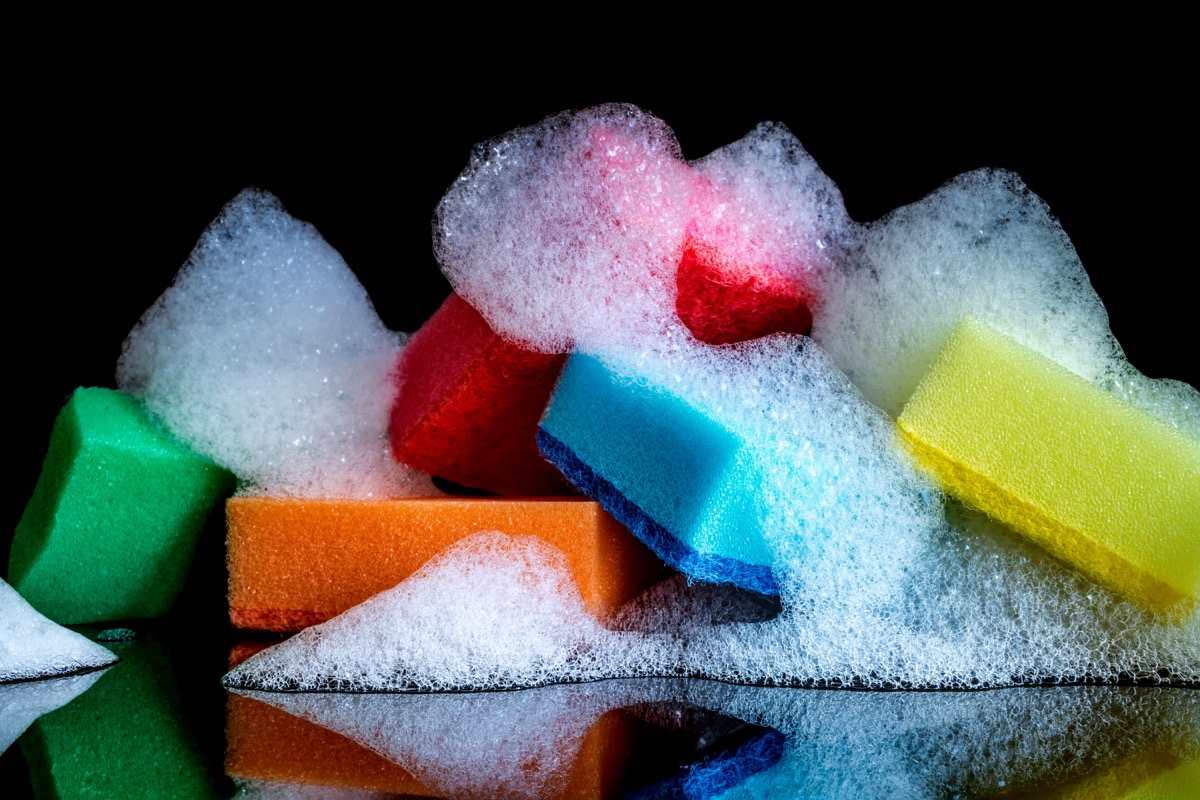
Even if you're diligent about cleaning your sponges, they still contain way more bacteria than you may think and should be replaced frequently. In fact, a 2017 study published in Scientific Reports journal found that sponges may actually lead to an increase in bacteria—including pathogenic bacteria, like E. coli and salmonella. Based on their findings, researchers recommend replacing your sponge once a week.
11
Bleach
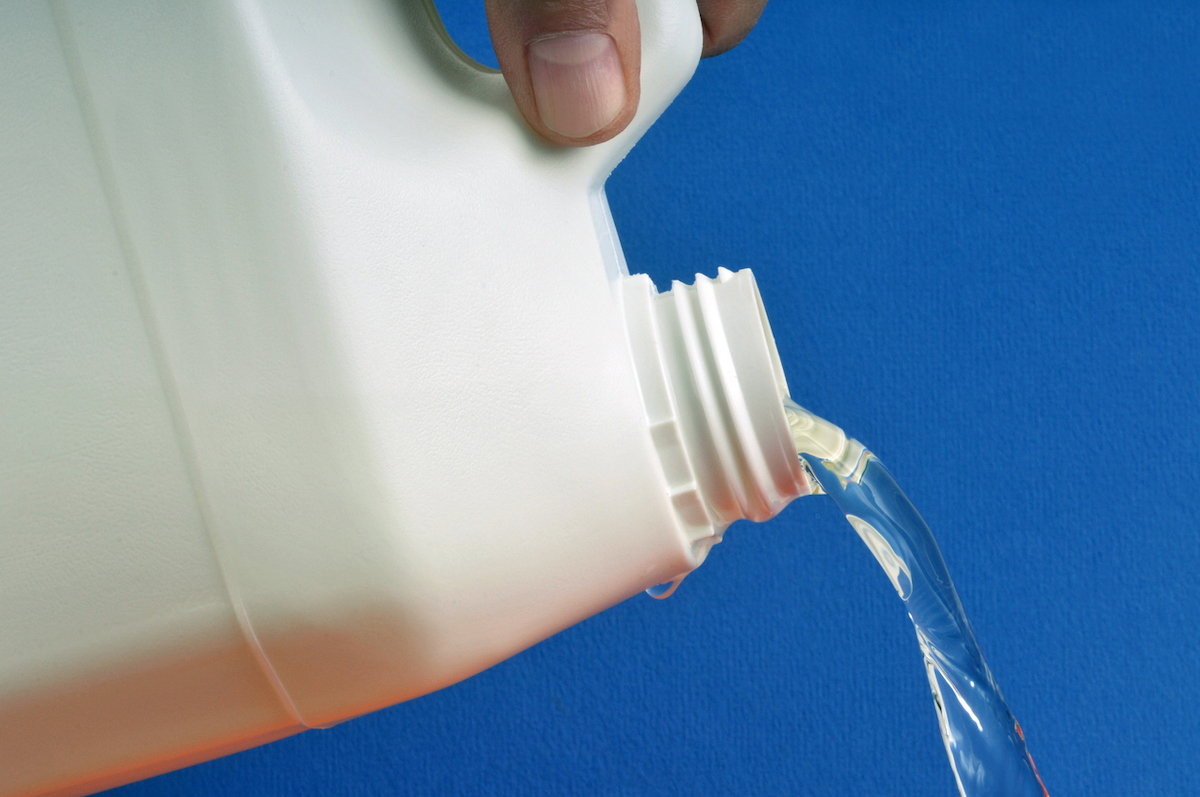
Bleach is a staple in most homes—but it expires surprisingly quickly. According to The Scripps Research Institute, bleach begins to degrade after about six months of being opened. Although this doesn't necessarily make it dangerous, it does mean that bleach's disinfecting qualities become less effective, so it's not killing as many bacteria and viruses as it should.
12
Windex
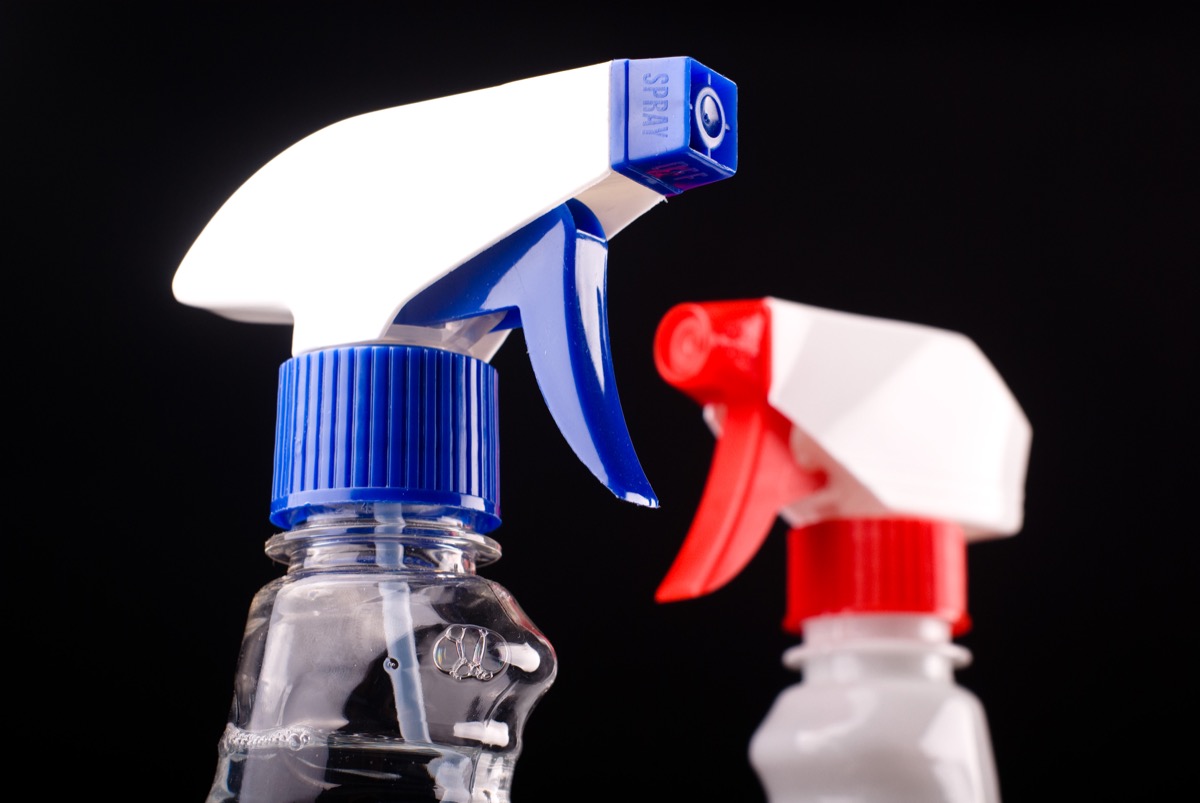
To keep your windows and mirrors clean and streak-free, make sure you're not using your window cleaner past its expiration date. According to the manufacturers of Windex, this cleaning product has a shelf life of two years.
13
Eye drops
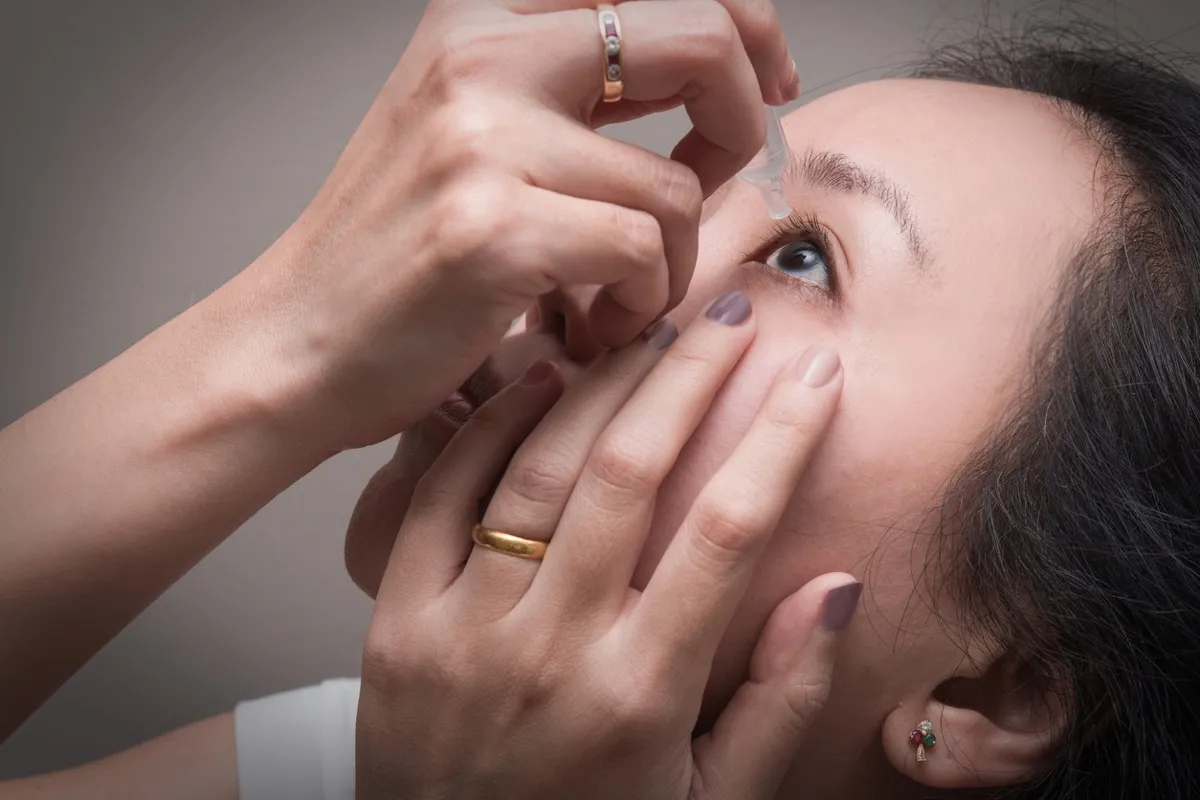
"Eye drops are generally formulated with a preservative that keeps the product sterile for 28 days after breaking the seal," says Erin Nance, MD, a board certified surgeon who works in New York. These preservatives are designed to prevent bacteria from growing in eye drop bottles, which extends their shelf life—but they still need to be tossed four weeks after opening.
"If you use expired eye drops which don't have active preservatives, and the tip of the eye drop bottle becomes contaminated [when] it touches a part of your eye, this can cause a bacterial infection if those drops continue to be used," says Nance.
14
Contact lens cases
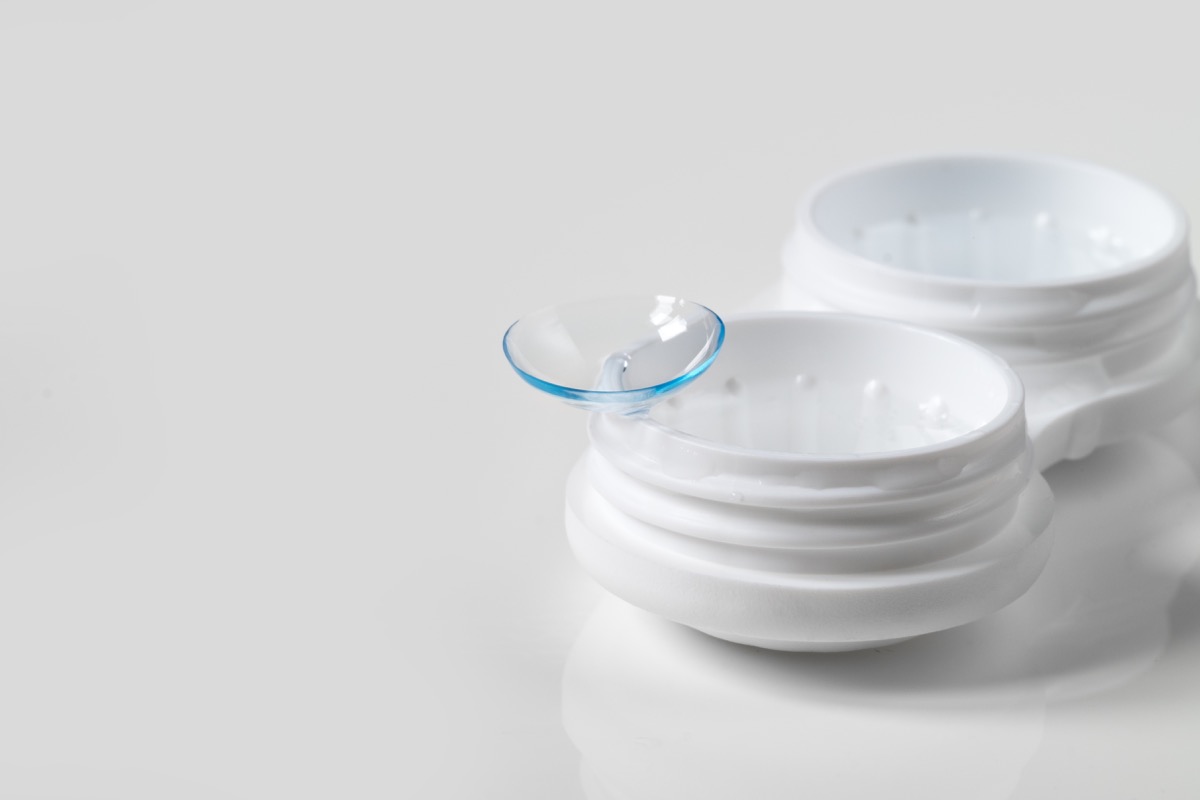
Mark Bowers, OD, an optometrist at Blountville Family Eyecare, says contact lens cases should be replaced at least every three months—and the solution in your case should be completely changed every time you use your lenses.
"Bacteria can form an invisible film lining on the lenses, which is called a biofilm. This biofilm protects the bacteria from the solution, thus increasing your risk of infection," Bowers explains. And that bacteria can easily spread to your lens case during storage.
15
Disposable razors
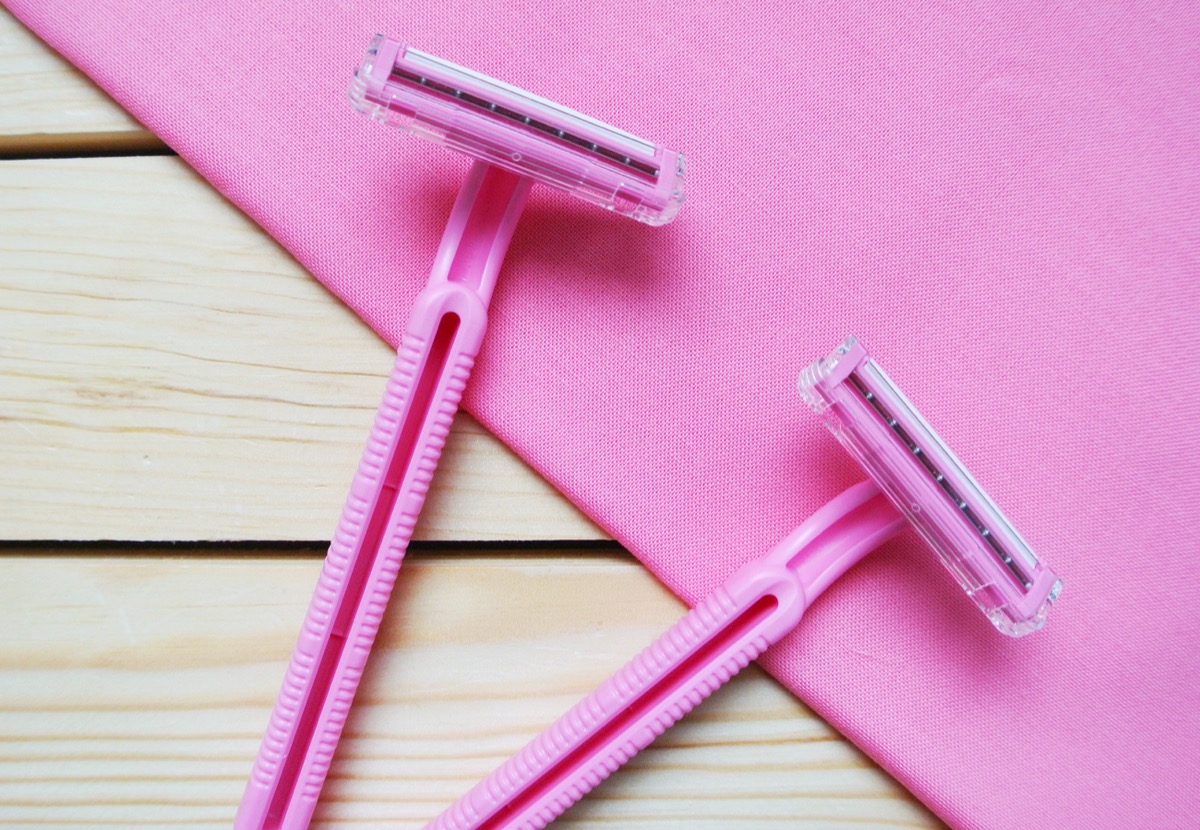
Disposable razors have a shelf life because they are hotbeds for gathering bacteria, according to research published in 2012 by Infection Control Today. Also, using disposable razors for more than three shaves can result in skin irritation or rashes, so make sure you're swapping out your razors frequently.


